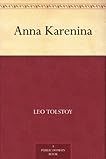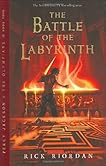 Vronsky heard with pleasure this light-hearted prattle of a pretty woman, agreed with her, gave her half-joking counsel, and altogether dropped at once into the tone habitual to him in talking to such women. In his Petersburg world all people were divided into utterly opposed classes. One, the lower class, vulgar, stupid, and above all, ridiculous people, who believe that one husband ought to live with the one wife whom he has lawfully married; that a girl should be innocent, a woman modest, and a man manly, self-controlled, and strong; that one ought to bring up one’s children, earn one’s bread, and pay one’s debts; and various similar absurdities. This was the class of old-fashioned and ridiculous people. But there was another class of people, the real people. To this class they all belonged, and in it the great thing was to be elegant, generous, plucky, gay, to abandon oneself without a blush to every passion, and to laugh at everything else.
Author:
Vronsky heard with pleasure this light-hearted prattle of a pretty woman, agreed with her, gave her half-joking counsel, and altogether dropped at once into the tone habitual to him in talking to such women. In his Petersburg world all people were divided into utterly opposed classes. One, the lower class, vulgar, stupid, and above all, ridiculous people, who believe that one husband ought to live with the one wife whom he has lawfully married; that a girl should be innocent, a woman modest, and a man manly, self-controlled, and strong; that one ought to bring up one’s children, earn one’s bread, and pay one’s debts; and various similar absurdities. This was the class of old-fashioned and ridiculous people. But there was another class of people, the real people. To this class they all belonged, and in it the great thing was to be elegant, generous, plucky, gay, to abandon oneself without a blush to every passion, and to laugh at everything else.
Author: Lev Nikolayevich Tolstoy
Synopsis: When beautiful, charismatic Anna Karenina finally succumbs to Count Alexey Vronsky’s illicit attentions, she must sacrifice either everything she lives for—including her son and society—or the only romance she’s ever known. Meanwhile, shy nobleman Konstantin Levin searches desperately for happiness and meaning in life, pursuing pretty Kitty Shcherbatskaya, peace with the peasant laborers who work his land, and spiritual honesty. As Anna and Konstantin seek joy, separately but with similar passion, both must face matters of morality and the consequences of choice.
Notes: With a book of this magnitude, you don’t review it—it reviews you. But I’ll see if I can’t find something intelligent to say about it.
As someone with an armchair interest in all things Russian, this story interested me from the names on down. I wondered, and have not resolved, why Ekaterina was called by the English 'Kitty', and Darya 'Dolly', instead of Katya and Dasha. Likewise, why Alexey Alexandrovich Karenin was called by his Christian name and patronymic, whereas Alexey Kirillovich Vronsky (really, Tolstoy, were you trying to kill my favorite Russian male name? I’ve always liked Alexey) was generally referred to as Vronsky except for the one part where he was out on his estate.
More fascinating, from the etymological perspective, is that the surname Levin is closely related to the author’s own Christian name; the first of many similarities between author and protagonist, both of whom ultimately prioritized the spiritual search above all else in life.
Nineteenth-century Russia, as contrasted with twenty-first century America, also provided an excellent illustration of the fact that not all cultures think alike. While some of the conversations grew dull after a few pages, the different perspectives on class, poverty, society, religion and marriage were intriguing. Tolstoy covered early communism and hints of democracy among the nobility, and the ideas and consequences of Orthodoxy, Pietism and atheism. More specifically to the story, he discussed treatment of marital infidelity in three perspectives: as natural, as evil, and as acceptable if kept from the public eye. All of these offered themes and thoughts startlingly removed from quotidian Western ideologies.
And into all that mix were thrown the characters, the loved and the hated.
Anna could not but sometimes prove sympathetic, despite her adultery. The strong, sensitive longings of a woman for love and stability can save or destroy; in Anna's case, they tore her down the middle. Also, she suffered the injustice of a community that judges woman but not man. Vronsky’s pursuit of her was shameless and determined; her brother Stiva carried on one affair after another, deceiving his wife, equally without shame; both of them were in some sense worse than she, yet neither suffered from societal consequence as she did. It is nothing short of horrific to watch her treated as a 'lost woman' by those who welcomed Vronsky and Stiva at every turn.
Vronsky came off as something of an idiot, without much of weight to be said for or against him except that he had feeling but no principle. He had physical boldness, but not courage; generosity to those he liked, but not respect for anyone; passion, but little idea of how to give love. He was likable on rare occasions, but never admirable.
Alexey Alexandrovich, Anna’s husband, evoked respect and disgust and compassion by turn. Lidia Ivanovna's influence gradually ate away at his general respectability, but he retained strands of it by his compassion to little Annie. The tale of Annie's and Seryozha's growth to maturity in such a house would probably make stuff for another tragedy-laced great novel, however.
Levin, who apparently took strongly after Tolstoy himself, annoys and fascinates and sometimes delights. His character contained the myriad depths of the shy, serious, conscientious type: the way his concentration locked onto one project after another, his frustration over things not getting done right, his attempts to empathize with the peasantry, his bafflement over his own feelings, his inability to live life without first understanding it, and his constant devotion to the search for truth and goodness. The best part of the tale is his eventual thinking through ideas C.S. Lewis would later work through in the first chapters of
Mere Christianity.
But then, that’s the focal point of the book. The central theme, the idea, is in the contrast between Anna’s choices and Levin’s, between her journey into despair and his into joy. Both of them wrestled with right and wrong, with passion; both of them were even suicidal in their desperation. The question and the resolution were alike centered in the spiritual.
If you haven’t read this book and don’t want
spoilers, skip ahead.
In some cases, I prefer getting spoiled. I’m glad that I knew to expect tragedy. The foreshadowing of Anna’s death gave me chills, and I felt somewhat prepared to walk with her along the platform and face what, being only the reader, I couldn’t stop her from doing. It still hurt to watch. Her wandering mind was confusing to read, and her jealousy bewildering, but the moment on her hands and knees on the tracks made clear sense. She died praying, and it is not hard to believe that God hears such a cry.
Tolstoy, with authorial cruelty, took us immediately away from that climactic moment and dropped us into some drollery about Sergei Ivanovich and his publishing woes, which resulted—for this reader at least—in a couple of chapters of furious angst. Sergei Ivanovich led eventually to a glimpse of Vronsky, however, who did call forth some compassion. At last, the book returned to Levin, whose spiritual awakening made sense of the rest of the tale.
Spoilers ended.
It’s been years since I read Dostoevsky, but though I loved
Crime and Punishment, I think I actually preferred
Anna Karenina. Or at least, I loved them equally. Both novels deal with themes of sin and guilt, and both resolve toward hope and faith. The difference is that Sofya Semyonovna struggles in the darkness, eyes fixed faithfully on the glimmer far beyond the heavy shadow; Konstantin Levin trudges in the light, finally discovering that all he has to do is open his eyes.
It’s too bad Tolstoy himself couldn’t stay there; it’s a good place to be.
Recommendation: You may wish for a little vodka to get through a couple of parts, but the tale is absolutely worth the read.















